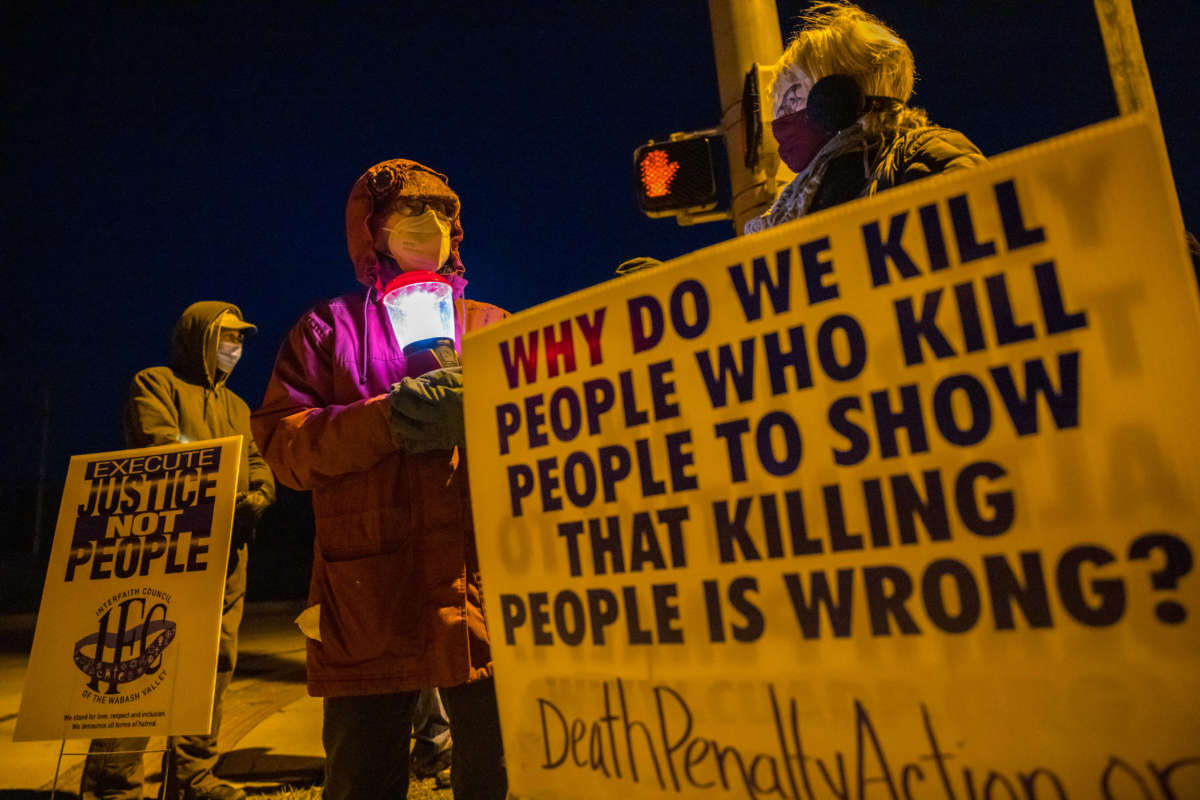The Virginia Senate voted on Wednesday to end the state’s practice of carrying out the death penalty for individuals charged with committing capital crimes.
The state-level bill to abolish the death penalty passed 21-17 along strictly partisan lines, with Democrats in support of ending the practice and every single Republican voting against the measure.
The bill now moves to the Virginia House of Delegates, where it’s expected to pass in the Democratic-controlled chamber. If successfully passed, it will likely be signed into law by Democratic Gov. Ralph Northam, who has expressed support for the measure.
If the bill becomes law, Virginia will become the first southern state in the U.S. to abolish the death penalty. Presently, 28 states across the nation allow the death penalty to be utilized as a punishment for those who are convicted of capital crimes. Virginia’s last execution happened in July 2017.
Virginia is second only to Texas in regards to the number of individuals it has executed since the Supreme Court allowed the practice to resume, after a brief moratorium, in 1976. The state has performed 113 executions since that time.
The bill’s sponsor, Sen. Scott Surovell, a Democrat, decried how the death penalty has been used many times over the years, only for evidence to later exonerate an individual who was sentenced to death.
“I cannot think of anything that is more awful, unspeakable and wrong for a government to do than to use its power to execute somebody who didn’t commit the crime they’re accused of,” Surovell said. “The problem with capital punishment is that once it’s inflicted you can’t take it back, it can’t be corrected.”
He and other lawmakers also cited racial disparities that exist when it comes to sentencing individuals to death, while also noting that as a deterrent to crime, the death penalty is a failure.
A study from the Harvard Civil Rights – Civil Liberties Law Review in 2020 found substantial evidence of the death penalty being practiced in racist ways: Defendants convicted of killing white victims were 17 times more likely to receive a death sentence than were those who were convicted of killing Black victims, according to the study.
Other studies have found that the defendant’s race itself has played a substantial role in whether juries voted to send someone to their death. Black defendants are nearly four times more likely to receive a death sentence than white defendants.
Hundreds of death row inmates have been wrongly sentenced over the years, too. According to a 2014 study, at least 4.1 percent of all convictions that lead to a death penalty sentence from the 1970s to 2004 were likely made errantly — meaning that around 340 individuals were wrongly sentenced during those years.
Meanwhile, activists have noted that capital punishment isn’t the only way in which people die while incarcerated. Organizers have also been increasingly taking on the issue of death by incarceration, otherwise known as life-without-parole sentences.
“According to the Sentencing Project, more people are serving death-by-incarceration sentences today than the total number of people in prison in the 1970s” — even though crime rates have been falling since the early 1990s, wrote Asha Ralph, assistant professor of criminal justice at Columbus State University, and Brian Pitman, assistant professor of sociology at the University of Maine in Orono, in an op-ed for Truthout last month.
Not all of those who were sentenced to die in prisons committed capital crimes, either, they noted:
The net has been (and continues to be) widened for death by incarceration-eligible offenses — meaning that many people who might have previously received shorter sentences are now condemned to spend the rest of their lives in prison. Habitual offender laws have also contributed to the rise of these sentences, where some people who are incarcerated for an accumulation of multiple offenses are facing death by incarceration.
Meanwhile Pitman and scholar Stephen Young have also made a compelling case for why the Biden administration should immediately commute all death sentences at the federal level, noting the obvious racial biases inherent to the practice:
The death penalty’s legacy is tied to the history of racial terror lynchings in the South, with a decline in lynching being accompanied by an increase in death penalty sentences in court. The death penalty process is further biased, as support for the death penalty is required to serve on a jury for a death penalty case, and white people are statistically the predominant supporters.
Despite favoring policies in the past that have expanded the use of capital punishment, President Joe Biden openly campaigned in 2020 on ending the death penalty — the first president in U.S. history to win office while expressing such an opinion. Activists are hopeful that action from the president or from Democrats in Congress can come within the first few months of the new administration.
“My view is the death penalty package should be sooner rather than later,” Henderson Hill, senior counsel at the American Civil Liberties Union’s capital punishment project, said to HuffPost last month. “And the question for me is, do we do it in 45 days, do we do it in 60 days, do we do it in 90 days?”
Join us in defending the truth before it’s too late
The future of independent journalism is uncertain, and the consequences of losing it are too grave to ignore. We have hours left to raise the $12,0000 still needed to ensure Truthout remains safe, strong, and free. Every dollar raised goes directly toward the costs of producing news you can trust.
Please give what you can — because by supporting us with a tax-deductible donation, you’re not just preserving a source of news, you’re helping to safeguard what’s left of our democracy.
